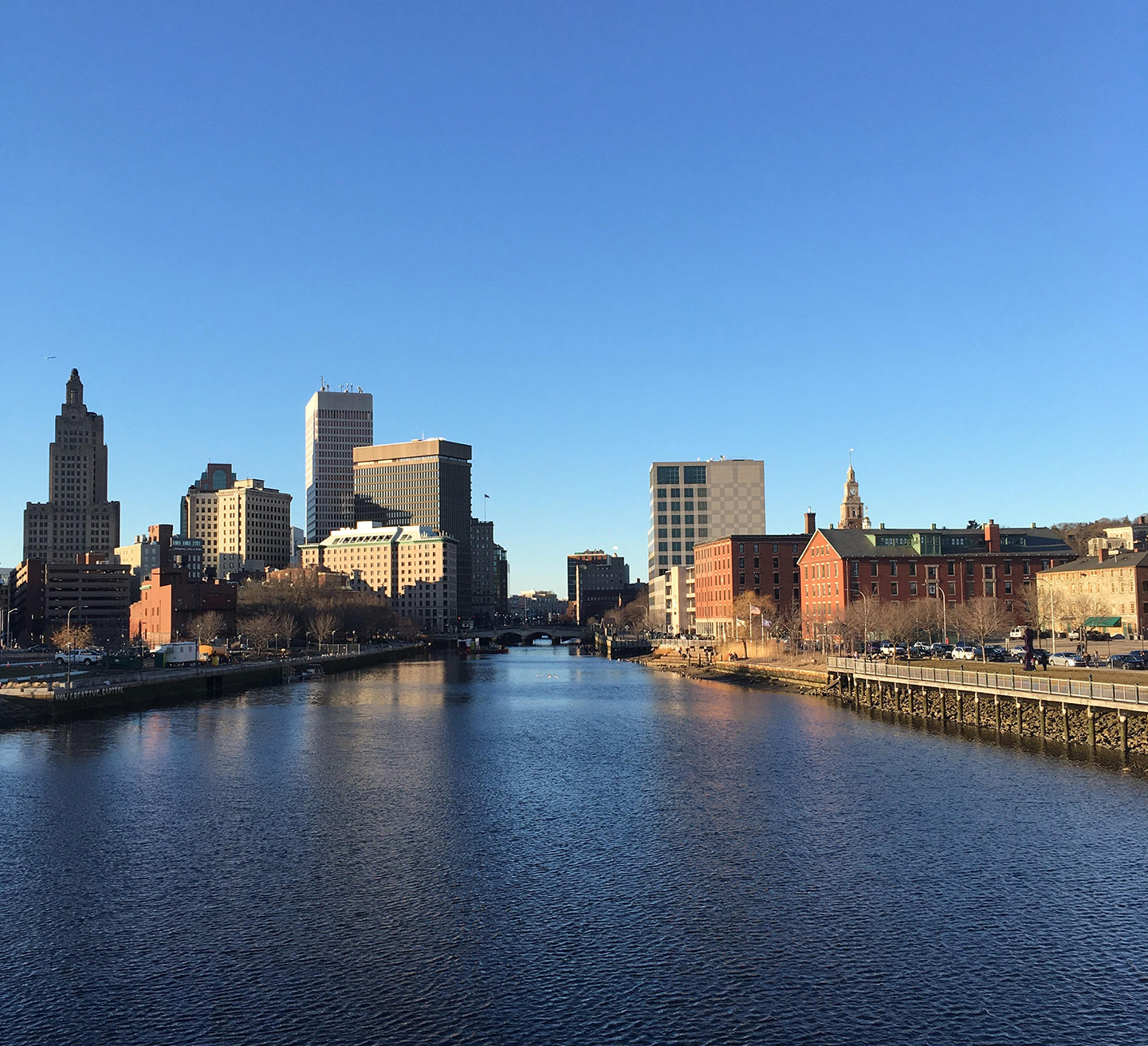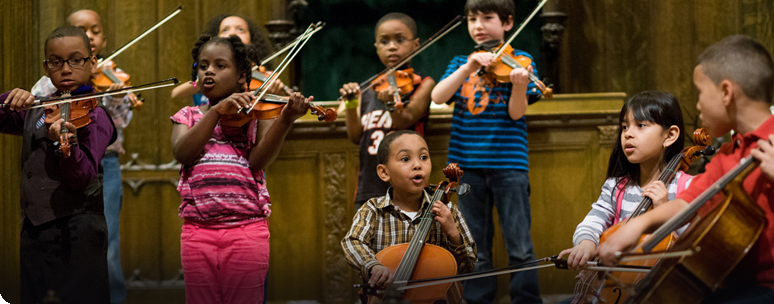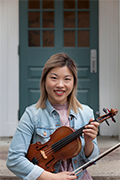 Downcity Providence in early spring.
Downcity Providence in early spring.
There is an unexpected sense of adventure that comes with the unknown. When I first moved to Providence as a new CMW Violin Fellow nine months ago, I was eager to experience new adventures. I was no stranger to moving around frequently, having lived in different places every 2 to 4 years since I started college. What made this move particularly exciting was that I had finally found the perfect job. I had learned about CMW in my sophomore year of college, but had never been free to apply for the Fellowship due to my schooling and work schedule. It seemed too good to be true: a job where I could teach music in a meaningful way, tackle and understand problems like racism and social inequality, and perform for the community. It checked every single box that I was looking for when I was an optimistic sophomore piecing together my life. Six years after, I was offered the opportunity to see if this was what I wanted to do for the rest of my life.
I am now 8 months into this job. It still checks all of the boxes for me, but it has had its unique struggles. The teaching is not the hard part. The rehearsing and collaborating with my coworkers don’t really present the biggest challenges. It’s the racism part that comes back to me all the time. There is never a moment when I don’t notice it. Let me explain: Almost like a hazing ceremony, the very first thing that I had to attend as a Fellow was the MusicWorks Network Institute, where other non-profit organizations joined with CMW for a week to discuss the topic of racism in classical music. It was exactly like being pushed into frozen lake water without warning. I had taken race-relation courses in college and was also a part of a multi-ethnic Christian student group that frequently talked about these things, but I had never looked at it in the context of classical music. I was made to question several things. Why do we play the music that we do? Who determines what is good and what isn’t? Is music theory really the only way to understand music, and why don’t we teach other musical concepts from different cultures? What kind of role do Asians and Asian Americans play in the classical music field and are we perpetuating racist ideologies? Who is allowed to participate in classical music? As of now, I can tell you that I don’t have concrete answers to any of these questions, but I frequently think about them, especially when pondering what and how to teach my students.
And after a while, you find that it seems useless! Why waste all this energy swimming upstream if the tiny things you’re changing in your lessons or concert programming don’t even really stick with your students or audience? I started to think that I was mistaken in my endeavors or that I had a sense of self-importance that was misplaced. For many kids, playing the violin is just another extracurricular activity amidst the myriad other things they have to deal with every day, and they treat it as such. While this is definitely not my first encounter with this attitude, the meaning that I had assigned to my job made this realization a much harder blow to my spirit than in previous encounters.
One day, during one of our monthly teaching discussions, Sebastian brought up something in response to a statement about how playing the violin is a privilege. This sentiment is something that I had always believed growing up: treat your instrument like a treasure, don’t forget that most kids don’t have this opportunity that you do. Sebastian challenged this idea, saying that we actually don’t want the kids to think that violin is a privilege. This misplaced idea is just another piece of the racism that is prevalent in classical music. That’s when it all clicked into place. My mind drew this parallel: education was at one point seen as something that only the upper class could receive, but now, it is seen as a right for all, especially with the internet at our fingertips. How strange would it be for someone to say “This child shouldn’t have the right to learn math if he can’t even pay attention in class. He doesn’t even have adequate school supplies.” There aren’t very many people who would voice this kind of opinion. And this is how I came to realize that I am not changing a person’s life by allowing them to become a talented violinist; I am changing the system by saying that every child can and should learn an instrument if they want to.
As COVID-19 brings us further into the unknown, I am stuck at home, but still blessed in so many ways. I am teaching my students and having meetings with my CMW coworkers through video calls, and it brightens my day to be able to see everyone once a week despite the lack of physical connection. I try to maintain some semblance of a routine, although I can confess to you all that I am rather hopeless without obligations or a schedule. If I can get one thing done in a day, that is enough for me.
Sometimes, I feel guilty about not taking action when so many people, like healthcare workers, retail workers, delivery service workers, and city workers, are risking their lives to give us a shot at returning to normalcy. But I believe every person has a role to play, and I want to fulfill mine, especially when it’s something as easy as staying home. As we were brainstorming different ways for CMW to reach out and stay connected to the community during these times, the idea of getting a glimpse into the teachers’ lives through social media channels was suggested, and it felt like the right thing for me to do. I play violin and sing and share these things because that is what I have to offer, even if it is out of my comfort zone as a very introverted and shy person. Just like Sebastian provided that one glitter of gold wisdom that helped me to look past the surrounding sedimentary rock, I want to try and provide my own speck of gold while navigating this new territory of social isolation.
One of my favorite quotes comes from the Korean journalist Kim Dae O: “Spring doesn’t come to us from afar, but even now, it is coming from beneath our feet. We were born without a reason, and we should keep on living without a reason.”
Violin Fellow 2019-2021

